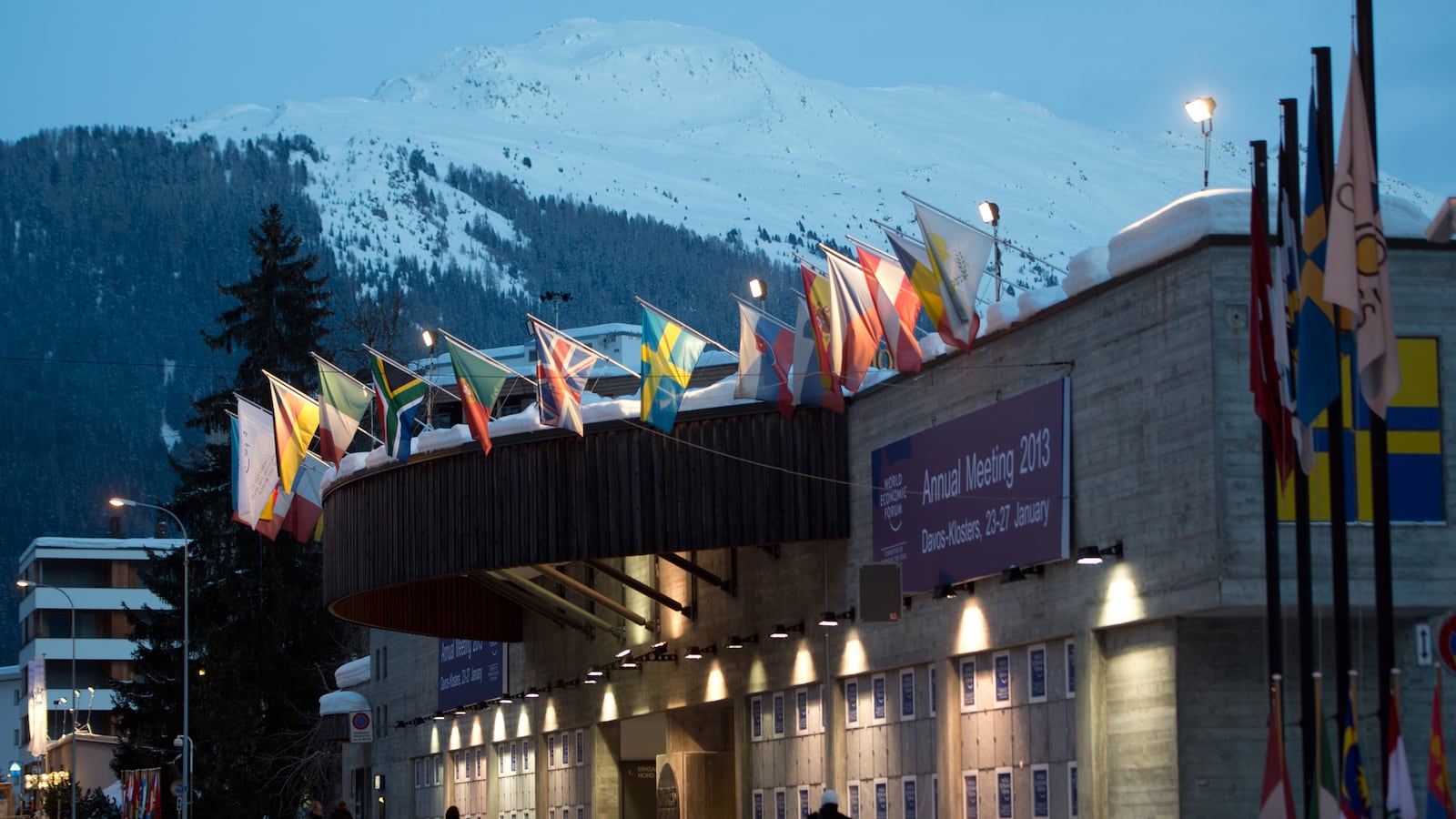The World Economic Forum kicks off today in the eastern Alps resort known to über-rich people everywhere as Davos, Switzerland. While the event’s title lacks the sex appeal of, say, the G8 Summit, it’s sure to be swimming with the heaviest of global heavy hitters. Twenty-five hundred of them, to be imprecise.

Why should I care about any of this?
Well, because it’s a gathering of mega-important people.
“World leaders, executive of top companies,” says Charles Ries, vice president of international at the Rand Corporation. “And these people do deals at Davos — businesses do deals with each other, businesses talk to governments cementing investment plans. They make connections.”
OK, but how is any of that going to affect me?
You may never know, sorry. Andrew Rose, associate dean for academic affairs at the University of California-Berkeley’s Haas School of Business, reduces the whole thing to a “schmooze-fest. It’s all completely informal, and very little happens there. I’m sure they all have a real good time.”
So wait, it’s a worthless junket?
No, no. All that schmoozing — especially amongst such a concentration of money and power — it can shift the whole global economics conversation, if ever so slightly. The London Business School’s Michael Jacobides is on his way there as we speak, for example, to see if he can’t “nudge” those who attend his session on European financial reforms, he told The Daily Beast.
Instead of fixating on the Eurozone countries that are dragging down the global economy, Jacobides is hoping he can get people talking about “reforming the reform agenda.” By that he means broadening the discussion about avoiding Europe’s next financial crisis from one that’s focused wholly on problem nations to one that understands the links between all Euro members.
“There’s a push for the EU not just to be a fiscal union, a banking union, but also a governing union,” Jacobides says.
But what if nobody listens to all these good ideas?
That is what worries Bernard Lietaer, an international currency expert who helped design and implement the Euro’s currency system and co-authored of the book, “Rethinking Monday: How New Currencies Turn Scarcity Into Prosperity.” Lietar notes that one of the themes of this year’s forum is “resilience” — against future economic crises, for example — but he’s concerned those in attendance at Davos don’t want to talk about the only real path to resilience: diversifying the way money gets passed around.
The “monoculture” of money released by banks all interconnected to each other and all vulnerable to the same things makes real resilience impossible, Lietar contends. There needs to be more business-to-business currency, more cities issuing currency — a “complex flow network,” as in, the flow of money.
In places like Davos, Lietar says, “they dance around the topic. They’re not really interested in real solutions because real solutions would reduce the power of some of the lobbies presented there. I have yet to see something come out of Davos that actually challenges the interests of banks.”
But this could be the year, couldn’t it?
Sure, maybe. Andrew Schrage of Money Crashers, a personal-finance website, figures the forum could produce real steps to ensure that the financial calamities that struck Greece, China and the U.S. “never happen again.”
Can I go hob-nob, maybe make some sweet business connections?
Doubt it. As The New York Times has warned, just to be eligible for an invitation costs an annual fee of $52,000 (as of 2011), along with another $19,000 to attend the conference. To wriggle your way into private sessions with top industry execs? That'll be another $156,000, please.
What if I just show up and hope to meet Angela Merkel on the slopes?
Yeah, it’s possible. Davos has awesome skiing, and while we have no idea if the German chancellor plans on hitting the slopes, she has been known to hang out with some of the country’s best. If you miss Merkel, Charlize Theron might still be lurking about; she received a humanitarian award at Tuesday's opening ceremony.

I hate the outdoors, though. But I love alcohol and celebrities. Any options there?
Yes! The Daily Beast throws what appear to be bitchin’ Davos parties.
What should I wear?
Almost nothing. At least, that’s what the Ukrainian protest group Femen wore when they charged out to Switzlerland last year to protest capitalism, among other things.

So is anything mind-blowing going to happen at Davos or not?
Probably not. But it has, in the past. In 1988, Greece and Turkey signed the “Davos Declaration” at the forum, which helped the two countries avoid a war. And in 1994, Israeli Foreign Minister Shimon Peres and PLO Chairman Yasser Arafat shook hands on a draft agreement over Gaza and Jericho.





